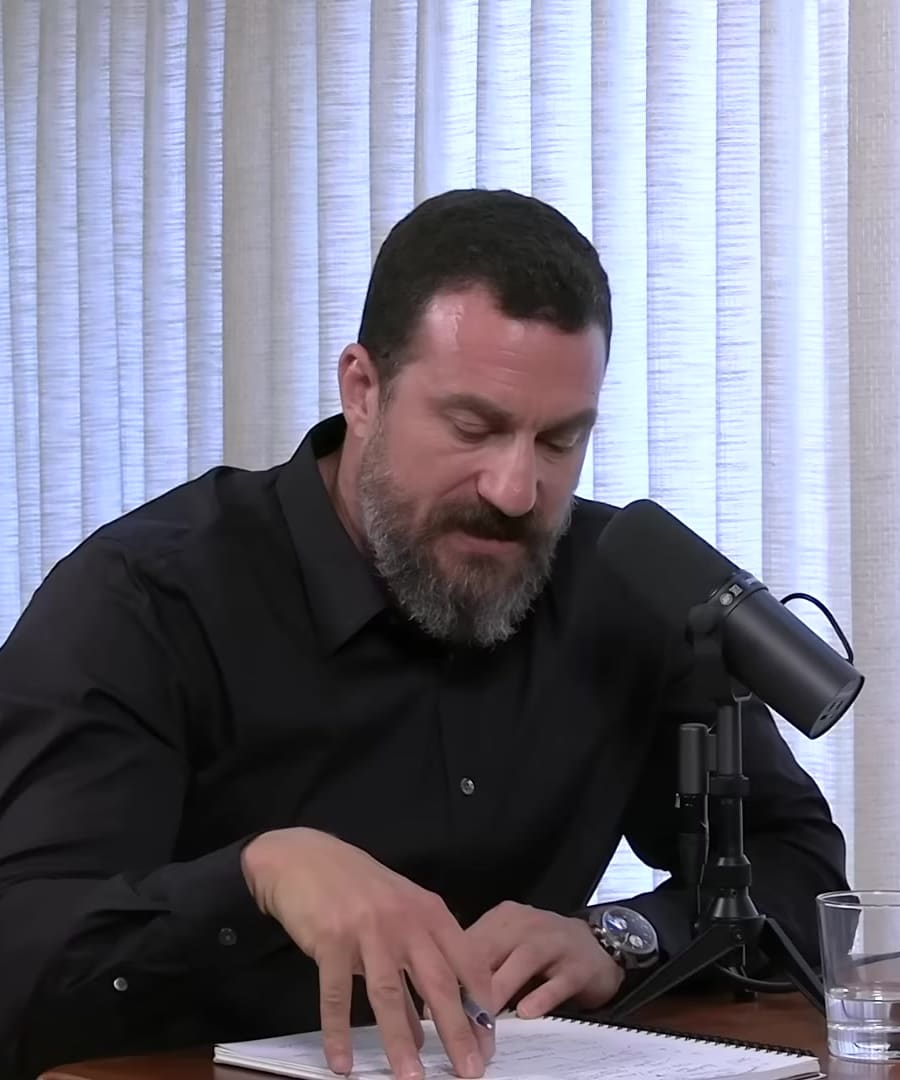Specialized pro-resolving mediators
Sources:
Currently, there doesn't appear to be specific expertise or discussion on specialized pro-resolving mediators (SPMs) from the retrieved data in the . Unfortunately, no individuals found among the experts seem directly associated with SPMs based on their known fields and contributions. However, you might find relevant insights by exploring episodes related to physiology, biochemistry, or inflammation, which could touch upon topics related to SPMs indirectly.
Could I assist you further with another inquiry or suggest alternatives you might explore within the Huberman Lab podcasts?
RELATED QUESTIONSWho are experts on SPMs?
Sources:
Among the experts related to discussions in areas potentially relevant to specialized pro-resolving mediators (SPMs), none are specifically identified as directly focusing on SPMs. However, Peter Attia, a physician and longevity expert, might have addressed related topics given his broad engagement with health, aging, and inflammation in the context of longevity medicine. He has made notable contributions to the field of medicine with a focus on longevity, integrating various aspects of health such as nutrition and sleep 1.
If you have any specific queries related to SPMs or need insights into related topics such as inflammation or longevity, exploring the work or discussions by Peter Attia might provide some valuable context or framework. Would you like to know more about what he might have covered related to these areas?
RELATED QUESTIONSWho else studies inflammation?
Sources:
Several experts are known for their work on inflammation and related areas:
-
: A neuroendocrinologist and professor emeritus at UCSF, Lustig focuses on public health, obesity, and metabolic health, often discussing the inflammatory effects of sugar and diet.
-
: A physician and longevity expert, Attia explores inflammation in the context of longevity, nutrition, and overall health optimization.
-
: Specializing in stress and neuroendocrinology, Sapolsky researches the effects of inflammation on health and stress.
-
: A health expert and podcast host focused on inflammation, nutrition, and health supplements.
-
: A professor specializing in microbiology and immunology, Sonnenburg studies the gut microbiome's impact on health, including its role in inflammation.
These experts offer valuable insights into various aspects of inflammation, emphasizing diet, stress, longevity, and microbiome health.
RELATED QUESTIONS-
What are specialized pro-resolving mediators?
Sources:
Specialized pro-resolving mediators (SPMs) are supplements that aim to aid in the resolution of inflammation. They are derived from omega-3 fatty acids and work by pushing the body's inflammatory responses towards resolution rather than just reducing inflammation itself. This is in contrast to common anti-inflammatory drugs like ibuprofen, which reduce inflammation but might block its complete resolution. SPMs can work alongside fish oil to be more effective in resolving inflammation, especially for those who endure physical stress, like athletes. Their use can be personalized, with some individuals needing varying doses depending on their body's specific requirements 1 2.
RELATED QUESTIONSHow do SPMs work?
Sources:
Specialized pro-resolving mediators (SPMs) work by aiding the resolution of inflammation in the body. They push the body's inflammatory responses towards a state of resolution rather than merely reducing inflammation. Traditional anti-inflammatory drugs, like ibuprofen, reduce inflammation's amplitude but can potentially block its complete resolution. SPMs, derived from omega-3 fatty acids, work best when combined with fish oil, offering a more effective solution for resolving inflammation, especially beneficial for those experiencing physical stress like athletes 1 2.
RELATED QUESTIONSHow do SPMs compare to anti-inflammatory drugs?
Sources:
Specialized pro-resolving mediators (SPMs) and traditional anti-inflammatory drugs, such as non-steroidal anti-inflammatory drugs (NSAIDs), serve different roles in managing inflammation and pain. NSAIDs, like ibuprofen and aspirin, reduce inflammation's amplitude by blocking certain pathways. They work well initially but often require increasing dosages for sustained effects and can have adverse effects on the liver, and may reduce beneficial exercise adaptations by lowering inflammation too much during workouts. Lowering inflammation excessively with NSAIDs can also affect core body temperature regulation and, consequently, sleep-wake cycles and metabolic functions 1.
In contrast, SPMs don't just suppress inflammation but help resolve it, steering the inflammatory process towards a natural conclusion without the adverse effects on exercise adaptation and other physiological processes. This unique mechanism makes SPMs particularly valuable as they manage inflammation and promote recovery more holistically 2 3.
RELATED QUESTIONS
Specialized pro-resolving mediators
- RELATED QUESTIONS
Who are experts on SPMs?
- RELATED QUESTIONS
Who else studies inflammation?
- RELATED QUESTIONS
What are specialized pro-resolving mediators?
- RELATED QUESTIONS
How do SPMs work?
- RELATED QUESTIONS
How do SPMs compare to anti-inflammatory drugs?
- RELATED QUESTIONS


